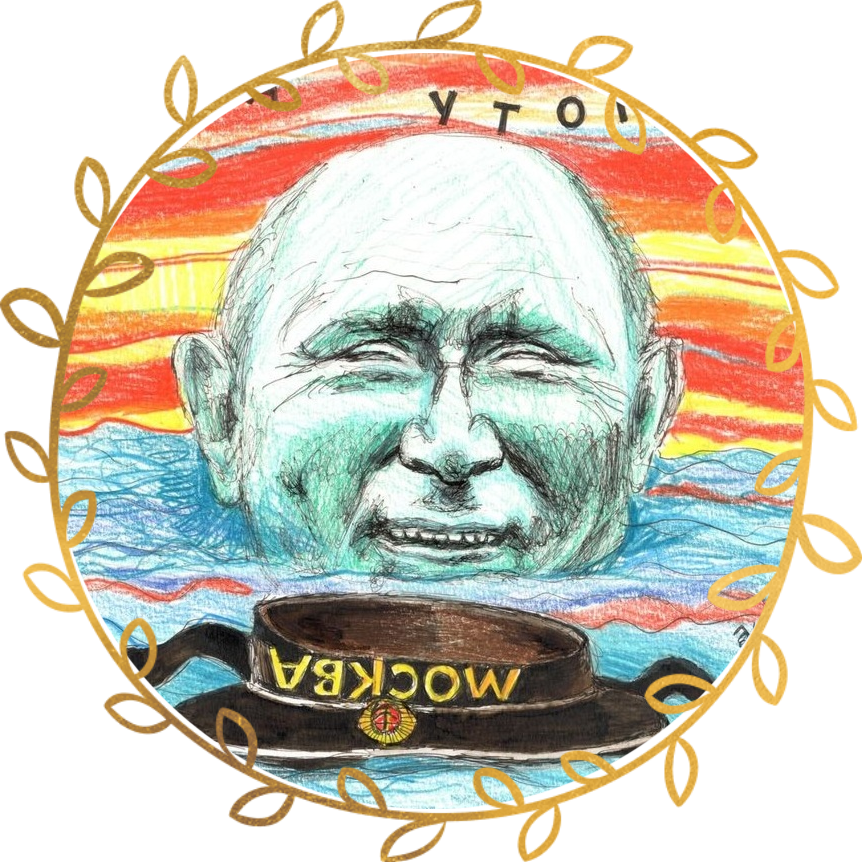Expanse Hub A platform to support talented creators through decentralized collaboration, volunteering and funding tools. Concept: Expanse Hub is a decentralized platform that connects creators (developers, artists, activists, authors) and those who are ready to support their ideas through volunteering, mentoring or funding. The project is designed to create an environment for interaction, knowledge sharing, and joint work on new initiatives that change the world. Based on the principles of decentralization, the platform ensures transparency, accessibility and equality for all participants, providing opportunities for the implementation of ideas and support through the community. Mission: Create conditions for active support of talents and initiators. To combine resources and ideas for the implementation of new projects. To provide a platform for collaboration, sharing experiences and attracting help from the community. Technical implementation:
- Decentralization through blockchain: Tokenization of interactions: All financial transactions, project support and interactions on the platform are carried out through cryptographic tokens. This ensures transparency and security. Identification through smart contracts: A smart contract is created for each project, which regulates the rules of interaction with users and resources.
- Interoperability with other platforms: Integration with existing networks: The platform provides APIs to integrate with popular social networks, crowdfunding platforms, blockchain networks, and other existing creator tools. Project evaluation system: A feedback and rating mechanism helps attract support from the community and potential sponsors.
- Support and cooperation mechanism: Volunteering and mentoring: Users can be mentors for new members or volunteers providing resource or consulting assistance. Gamification of interaction: Implementation of incentive systems such as points, rewards or ranks for active participants to increase project engagement and support.
- Security and transparency: Audit and verification of projects: All projects undergo a verification and audit process to ensure trust. Transparent financial reports: Each participant can check the financial and project reports to ensure that resources are being used properly.
- Creating a community: Virtual spaces for collaboration: Forum, chats, brainstorming sessions, shared documents for teamwork on projects. Events and webinars: Organization of events for exchange of experience, training, introduction to new technologies and ideas. Expanse Hub philosophy: Solidarity and support: All participants of the platform interact on the basis of support and mutual benefit. The project should be accessible to everyone who is ready to contribute. Innovativeness and openness: The platform is focused on the latest technologies and tools to support innovative ideas. Every project, regardless of scale, has a chance to be implemented. Transparency and trust: All processes on the platform are open for verification, which allows to ensure trust among participants and reduce the risks of manipulation.
This conceptual rendering gives a clear idea of what it might look like Expanse Hub on the technical and philosophical levels. Now you can proceed to more detailed implementation planning and creation of a prototype or the first version of the platform.
Yes, it is logical that the idea of decentralization (DC) can be closely related to the technical implementation of a platform to support creators and innovations. Let’s consider several reasons why such an idea, although it looks very promising, has not yet been implemented on a large scale:
- Technical difficulties and scaling The implementation of a fully decentralized platform for support and exchange between users requires significant technological support. Here are some of the main issues: Infrastructure: Ensuring reliability, security and speed in large distribution networks is difficult. Platforms based on decentralization technologies tend to have large infrastructure and resource requirements. Complexity in data management: In traditional centralized systems, all data is stored in one place, while in decentralized systems, it is important to ensure proper synchronization and access to data without a single control center. Development and support costs: Creating and maintaining a decentralized platform requires significant resources, both technically and financially.
- Place for conflicts and management problems Consensus and governance: Decentralized platforms require mechanisms to reach consensus among all participants, which can be difficult when dealing with a huge number of stakeholders, as in the case of different creators, developers, sponsors, etc. Distribution of powers and responsibilities: In a decentralized network, it is difficult to avoid the interaction problem between participants and to ensure a fair distribution of resources or support.
- Security and Privacy Abuse: Open platforms can be abused by participants, leading to attempts to manipulate the system or spread misinformation. Ensuring confidentiality: If the platform is decentralized and access to content and data is completely open, it creates problems for the protection of personal data and intellectual property of participants.
- Integration with existing systems Connection to centralized networks: For the platform to be really useful, it should have mechanisms of integration with other services and platforms already used by creators — from social networks to banking systems or payment platforms. This requires complex technical solutions.
- Infrastructure for volunteering and mentoring The successful implementation of such a project requires coordination between multiple organizations, volunteer organizers and mentors, which can be difficult due to different levels of access to information and management. How can this be implemented? To implement the idea of a decentralized platform to support creators, you can use technologies that provide transparency and trust, for example: Blockchain: to manage transactions, content, and to create mechanisms for support, sharing, and collaboration without centralized control. Distributed databases: to provide access to data without a single controlled server. Decentralized financial instruments (DeFi): to provide safe and open ways to fund projects. Interoperability with other platforms through open APIs or interoperability standards. Visnovok: The implementation of a decentralized platform to support innovation and creators is certainly an idea of the future, but there are significant technical and management challenges to overcome in order to succeed. This will require incremental development and likely integration with existing centralized systems. I understand that for the success of the project it is important to clearly define its concept and implementation strategy in order not to lose focus and ensure sustainability. Let’s capture the main implementation ideas for “Expanse” in a technical and philosophical context. Here are some key aspects to consider:
- Decentralized Platform based on blockchain Content storage and interaction: Using blockchain technology to store data and create transparent records of interactions, funding and projects. Support tokenization: Creation of tokens or smart contracts that enable transactions on the platform, for example to support through patronage or volunteering. Decentralized voting: Creation of mechanisms for making decisions on financing or supporting projects through decentralized voting among platform participants.
- Interoperability and integration with other systems API for interaction with other platforms: Integration with already existing content distribution platforms (such as social networks, crowdfunding platforms, other decentralized networks). Interoperability with DeFi platforms: Ensuring the possibility to attract financing through decentralized financial instruments (for example, DAOs for investing in projects).
- Support mechanism through communities Volunteering and mentoring: Creating an interface to connect mentors and volunteers who can support authors and creators with ideas, advice, financial or other resources. Gamification of interaction: Implement gamification elements to engage users in active participation (e.g. rewards, ranks for volunteers or mentors).
- A platform for exchanging ideas and knowledge Cooperation networks: Creation of an environment for interaction between creators of various fields — developers, artists, activists, through virtual spaces for exchanging ideas and working together on projects. Interactive webinars and events: Organization of meetings, webinars or events where participants can interact, share experiences and ideas.
- Transparency and trust Public access to results: Providing public access to project results, financial reports, history of interactions between participants to increase the level of trust in the platform. Audit and verification: Establishing procedures for auditing and verifying projects and platform participants to prevent abuse and manipulation. The name as a reflection of the idea: The name should convey the essence and mission of the project. You can use the following options: Expanse Network — emphasis on the network of cooperation and interaction. Expanse DAO — reflection of a decentralized approach and organization. Expanse Commons — the idea of a shared space for resources and ideas. Expanse Hub — a platform that unites talented creators and support. This will create a clear idea of what your platform will look like and what ideas are built into it. Philosophy: From the point of view of the philosophy of the idea of decentralization, it is important to emphasize: Solidarity: The project should become a platform where every participant, be it a developer, artist or sponsor, can get support and at the same time support others. Transparency and responsibility: All processes should be open to inspection to avoid unfair practices. Innovativeness: The Expanse movement should be not only technically innovative, but also socially important, helping to create new opportunities for the development of ideas and creative initiatives. Does this concept match your idea for the Expanse project?
Here’s what you can add for Expanse Hub for better structuring and expansion of the project context:
Key points: Decentralization and blockchain: Using smart contracts to ensure transparency and security in the processing of transactions and interactions between users. Tokenization of support: Creation of tokens to support projects, providing a convenient mechanism for funding through the community. Interoperability with other systems: The platform integrates with popular social networks and other tools, allowing you to effectively distribute content and attract support. Gamification and motivation: Implementation of a reward system for active participants to encourage interaction and support of projects. Transparency and trust: All processes on the platform are open for verification, which ensures trust among participants and prevents abuse.
Hashtags for social networks: #ExpanseHub #DecentralizedSupport #BlockchainForCreators #InnovativeCollaborations #TokenizedSupport #CreativeInnovation #CommunityEmpowerment #OpenSourceProjects #MentorshipAndVolunteering #ChangeMakers
Bibliography: Buterin, V. (2013). Ethereum: A Next-Generation Smart Contract and Decentralized Application Platform. Ethereum Whitepaper. Retrieved from https://ethereum.org/whitepaper. Tapscott, D., & Tapscott, A. (2016). Blockchain Revolution: How the Technology Behind Bitcoin and Other Cryptocurrencies is Changing the World. Penguin. Swan, M. (2015). Blockchain: Blueprint for a New Economy. O’Reilly Media. Galloway, A. (2019). The Fourth Industrial Revolution. Crown Business. Zohar, R. (2018). Blockchain Applications: A Hands-On Approach. Wiley.
List of terms: Blockchain: A data distribution technology that provides transparency and security through the use of cryptography and decentralized records. Tokenization: The process of creating digital tokens that can represent assets or services on blockchain platforms. Smart contracts: Software contracts that are automatically executed according to the conditions specified in the code. DAO (Decentralized Autonomous Organization): An organization that is managed using blockchain technology and smart contracts, without centralized management. DeFi (Decentralized Finance): Financial services and products that work on decentralized platforms, without the need for intermediaries. Crowdfunding: The process of raising funding for projects or startups from a large number of people, usually over the Internet. Gamification: Using game elements to engage and motivate participants in non-game contexts. Volunteering: Voluntary activity for the benefit of the community, which does not involve material compensation. Mentorship: The process of providing assistance and advice by experienced professionals to the development of less experienced participants.
This will help you create a more structured and holistic picture of the project, as well as provide the necessary tools for the popularization and development of the platform Expanse Hub in the internet space. Expanse Hub https://expanse-25.blogspot.com/p/blog-page.html

